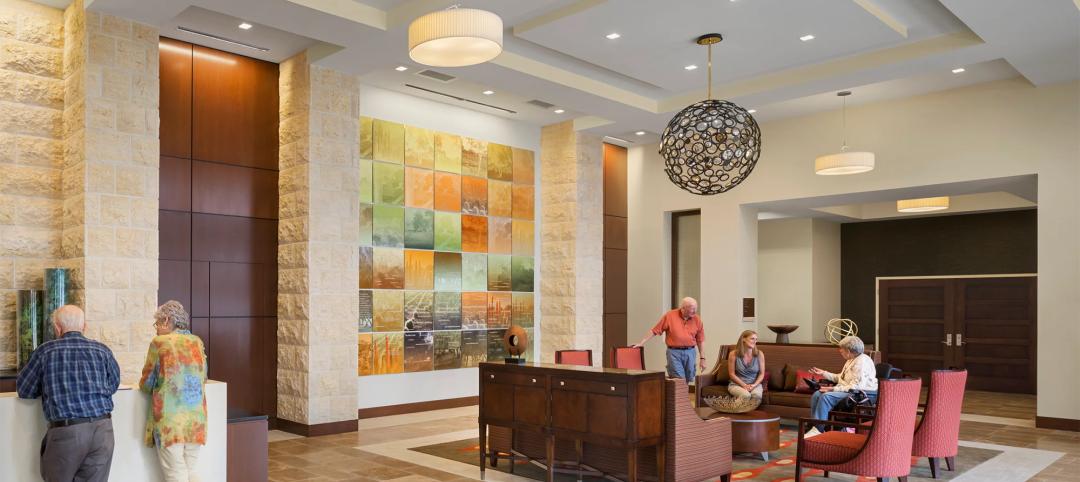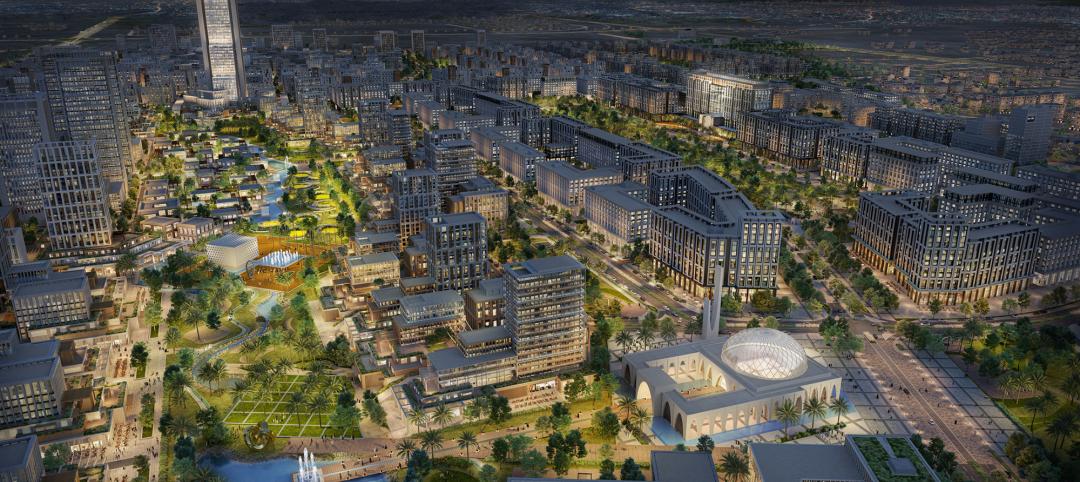Global management consulting firm McKinsey recently launched the Net Zero Built Environment Council, a cross-sector coalition of industry stakeholders aiming to decarbonize the built world.
The council’s chief goal is to collaboratively create new pathways to cut greenhouse gas emissions from buildings.
The Council will support stakeholders to create and commercialize new green innovations, create global sustainability metrics and research, and promote cost-effective pathways to “decarbonizing everything from construction methods to materials,” according to McKinsey.
The council will work to align siloed supply chains, construction projects and markets, and help industry players tap into an estimated $800 billion to $1.9 trillion in potential green markets. The launch of the Net Zero Built Environment Council comes alongside the release of a new McKinsey report that identifies a lack of collaboration within the built environment ecosystem as a key obstacle to decarbonization.

McKinsey’s research found that 76% of emissions from an average building are caused by operations, demonstrating a need for collaborative decarbonization across the entire built environment life cycle, not just during construction.
The report found that half of all emissions across the built environment could be eliminated with little extra cost, while 20% will be more costly and complex to decarbonize, such as cement and steel, requiring more industry partnerships to reduce costs and risks for all new materials and technologies.
3 goals of the Net Zero Built Environment Council
To help facilitate the critical elements for change, we are launching the Net Zero Built Environment Council, which brings together many of the leading incumbents and new scale-ups across the built-environment ecosystem. Along the lines of the three ingredients covered in this article, the council’s ambitions can help with the following actions:
- Create transparency. Establish a fact-based perspective on a possible cost-effective recipe (translate the most powerful technology and other levers into a simplified playbook that applies to major building archetypes).
- Raise awareness of what is doable. Remove perceived barriers to decarbonization, capture the interest of decision makers, and spur “positive pressure” and acceleration to act.
- Stimulate partnerships and encourage initiative. Enable execution via innovative financial models, deployment of technologies, and scaling of efforts by bringing together stakeholders from across the built environment, whether by jointly commercializing technologies at scale or by identifying and creating lighthouse projects.
All contributors along the value chain must come together to overcome systematic challenges and increase transparency on cost-effective pathways to reach decarbonization goals and spread awareness to the entire sector. In this sense, the Net Zero Built Environment Council represents an important step forward in uniting industries and sectors—not only to achieve their climate ambitions but also to create green growth in the built environment.
Related Stories
Great Solutions | Jul 23, 2024
41 Great Solutions for architects, engineers, and contractors
AI ChatBots, ambient computing, floating MRIs, low-carbon cement, sunshine on demand, next-generation top-down construction. These and 35 other innovations make up our 2024 Great Solutions Report, which highlights fresh ideas and innovations from leading architecture, engineering, and construction firms.
Senior Living Design | Jul 23, 2024
The growing importance of cultural representation in senior living communities
Perkins Eastman architect Mwanzaa Brown reflects on the ties between architecture, interior design, and the history and heritage of a senior living community’s population.
MFPRO+ News | Jul 22, 2024
Miami luxury condominium tower will have more than 50,000 sf of amenities
Continuum Club & Residences, a new 32-story luxury condominium tower in the coveted North Bay Village of Miami will feature more than 50,000 sf of indoor and outdoor amenities. The program includes a waterfront restaurant, dining terraces with resident privileges, and a private dining room outdoor pavilion.
Healthcare Facilities | Jul 22, 2024
5 healthcare building sector trends for 2024-2025
Interactive patient care systems and trauma-informed design are among two emerging trends in the U.S. healthcare building sector, according to BD+C's 2024 Healthcare Annual Report (free download; short registration required).
MFPRO+ News | Jul 22, 2024
6 multifamily WAFX 2024 Prize winners
Over 30 projects tackling global challenges such as climate change, public health, and social inequality have been named winners of the World Architecture Festival’s WAFX Awards.
Office Buildings | Jul 22, 2024
U.S. commercial foreclosures increased 48% in June from last year
The commercial building sector continues to be under financial pressure as foreclosures nationwide increased 48% in June compared to June 2023, according to ATTOM, a real estate data analysis firm.
Codes and Standards | Jul 22, 2024
Tennessee developers can now hire their own building safety inspectors
A new law in Tennessee allows developers to hire their own building inspectors to check for environmental, safety, and construction violations. The law is intended to streamline the building process, particularly in rapidly growing communities.
Codes and Standards | Jul 22, 2024
New FEMA rules include climate change impacts
FEMA’s new rules governing rebuilding after disasters will take into account the impacts of climate change on future flood risk. For decades, the agency has followed a 100-year floodplain standard—an area that has a 1% chance of flooding in a given year.
Healthcare Facilities | Jul 18, 2024
Why decarbonizing hospitals smartly is better than electrification for healthcare design
Driven by new laws, regulations, tariffs, ESG goals, and thought leaders in the industry itself, healthcare institutions are embracing decarbonization to meet 2050 goals for emissions reductions.
Construction Costs | Jul 18, 2024
Data center construction costs for 2024
Gordian’s data features more than 100 building models, including computer data centers. These localized models allow architects, engineers, and other preconstruction professionals to quickly and accurately create conceptual estimates for future builds. This table shows a five-year view of costs per square foot for one-story computer data centers.

















